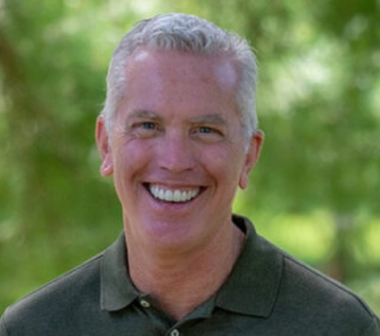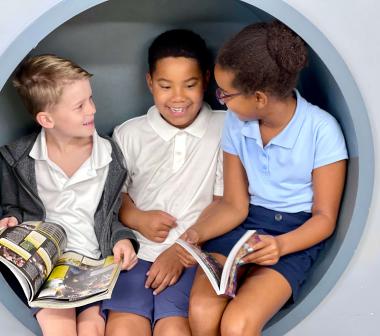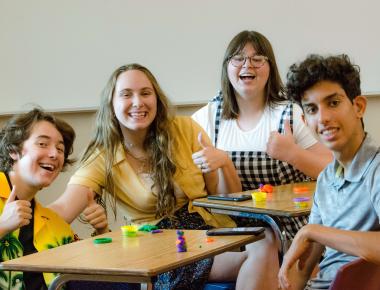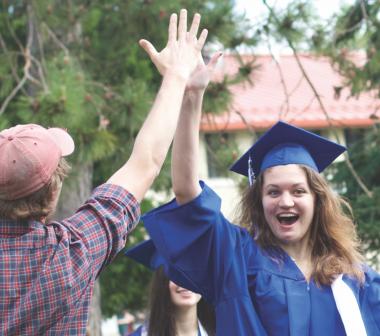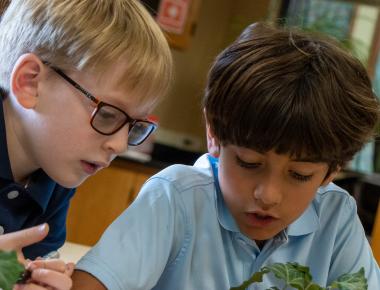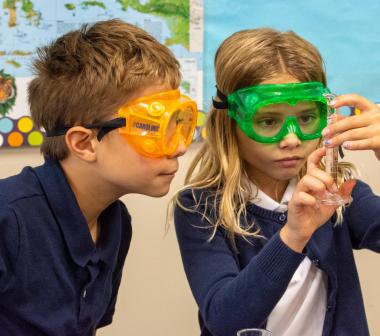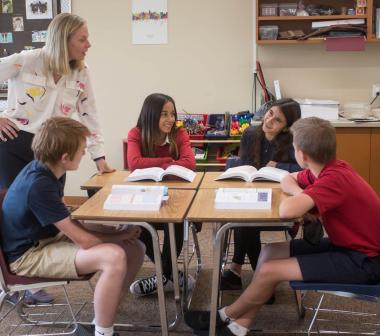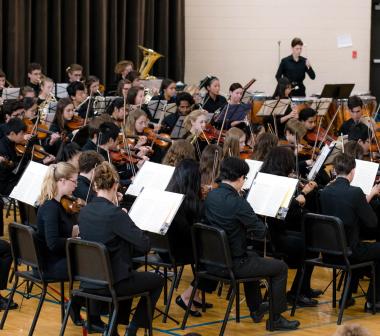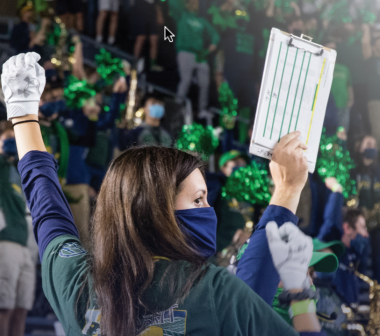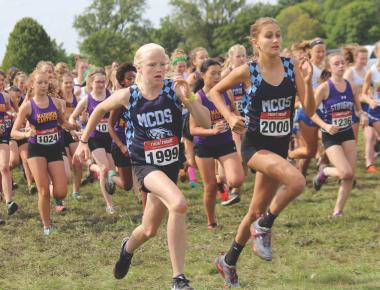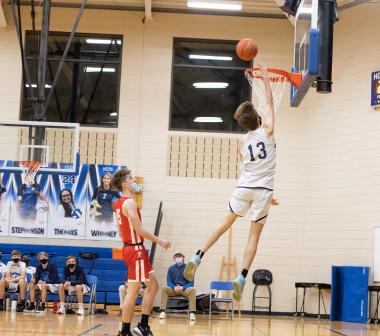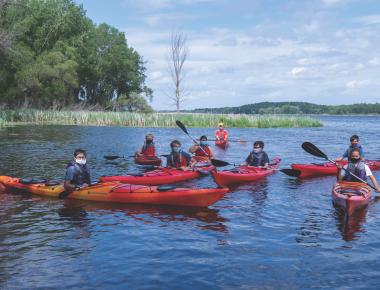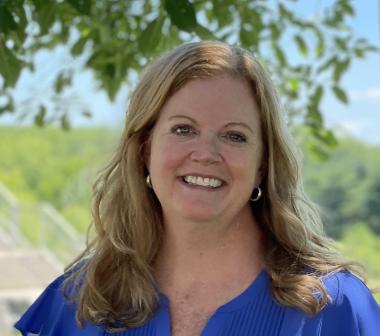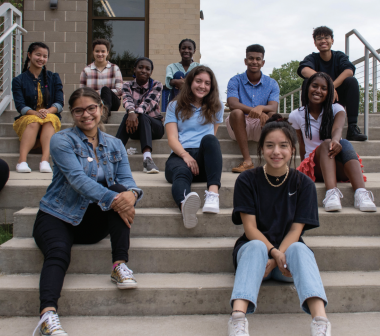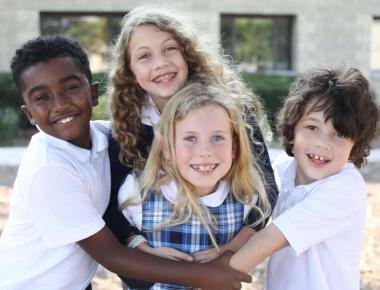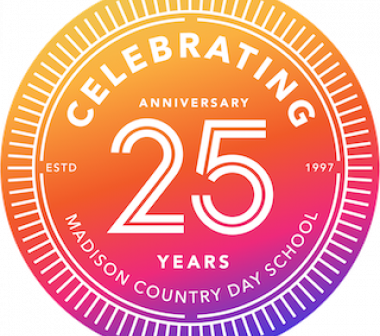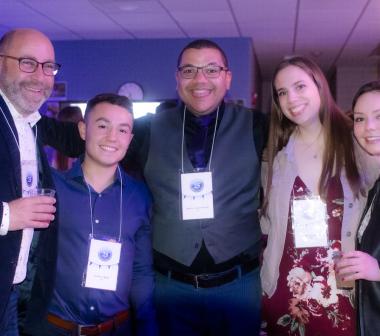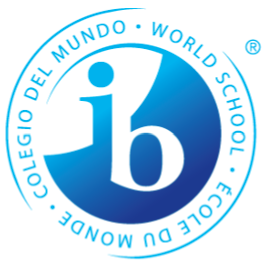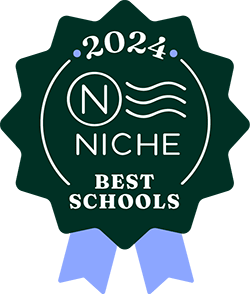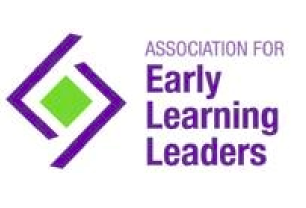Linda Tyranski joined MCDS this summer in the new role of middle and high school dean of students. In recent years, Linda served as the dean of students at Wayland Academy in Beaver Dam, Wisconsin, where she also returned to the classroom to teach English and work as a writing specialist in the school’s college counseling department. Linda’s experience, along with her training in educational psychology and teaching, make her uniquely qualified to engage with student life at MCDS.
Onward: What drew you to MCDS?
Linda Tyranski: Probably what draws everyone to MCDS, which is its focus on students. No matter what programs you offer, what resources you have, what activities you provide, you really have to focus on the student experience first. Reputationally, MCDS has a warm, caring faculty and staff, and they put students first. That’s what brought me here.
How did you develop your interest and specialization in student services and student affairs?
When I was little, I always imagined myself as a teacher, and I planned to teach English at the college level. As I was working on my master’s in English, I was also working in college residence life, and I loved student life. It was chaotic. Every day was different. I was really good at forming relationships and making it fun. From getting up and doing a dorky icebreaker to leading a serious educational program, I loved every aspect of it. So I decided to pivot and went into student affairs. My best skill, I think, is working with students who really need me. Working with that student who’s not thriving for whatever reason—listening to them one-on-one and helping them figure out what’s causing the problem or behavior—is important work and I’m honored to do it.
“Sometimes when we think about connecting with students, we think on a grand scale. But what’s really most meaningful is that every student feels like they matter and we believe in them.”
What are you excited about in your new position?
I think there’s a ripe opportunity for having a sort of clearinghouse in my office where we are paying attention to what’s happening with students from middle and high school. So when a student transitions from middle to high school, an administrator knows their story, has worked with the family, and has a good sense of what motivates that student. I’m looking forward to helping create that continuity along with the division heads.
Over the past couple of years, the student experience at MCDS has shifted due to the pandemic. Will that change affect your work with students?
By necessity during COVID, we had to separate students. And I’ve noticed this has somewhat diminished kids’ ability to socialize. When you’re in a social situation, you’re building those skills of negotiating, resolving conflicts, and just finding ways to connect with somebody. Those are skills that when you don’t use them frequently, you lose them. So I’m super excited to give students opportunities to relearn how to connect and socialize. It’s time for us to thrive again.
Can you talk about your philosophy for handling student conduct?
My approach is a counseling approach. Let’s sit down and talk about what’s going on with you. At my previous school, we put into place a preventative discipline system where if teachers were seeing a student who was extra distracted, maybe snarkier than usual, struggling to turn things in—any kind of new behavior—they would give me a head’s up. And if there were a couple of things that jumped out for a student, I would pull the student in and say, “Hey, I’m just checking in to see how you’re doing. I just want to make sure everything’s okay.” When the student talks about what’s going on, we brainstorm some things we can do. I want to help students get on top of whatever is causing an issue in the first place before it leaks out in the form of a discipline problem. But when it becomes a discipline issue, my philosophy is that there should be a predictable response as appropriate when kids cross the line. This is what creates a safe community for everyone.
What are your plans for supporting and spurring student leadership at school?
Building school spirit and student activities is a big part of my job. I definitely want to get the students involved in helping to plan things they think would be fun and exciting. Down the line, possibly, I’d love to have student leaders in advisory. If we’re going to be more intentional with the kinds of things we do in advisory, how fun would it be to have those things led by students?
How do you like to connect with students?
Sometimes when we think about connecting with students, we think on a grand scale. But what’s really most meaningful is that every student feels like they matter and we believe in them. I like to do that by connecting with students one-on-one, talking to them by name and finding out what they’re into. In the beginning, I’ll be focused on getting to know the students and finding out what’s important to them. We all want to know that we’re seen and heard.


